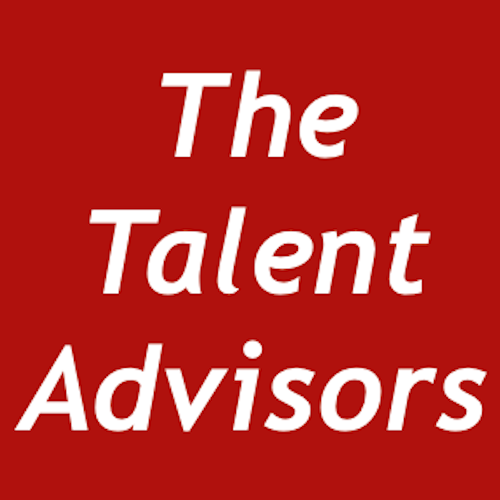EXECUTIVES NEED TO STAY RELEVANT
This article is part of our Insights For Action series. Join the mailing list to receive this and more.
It is inspiring to see a talented achiever at the pinnacle of success. Business – as with sport, arts, science, health, education or for-purpose organisations – has its field of role-models.
Yet, ask any group of successful people: “what is the key to an effective career?” and you will hear a sweep of answers. Often you hear about intelligence, confidence, passion and ambition. Others believe that success comes to those who know themselves – their strengths, their values, their purpose and how they perform and learn best.
In most fast-paced organisations with full ‘to-do’ lists, managerial leaders constantly work on the inside, the edge or the outside of shifting agendas. This can leave little individual time to fully consider better ways to stay relevant. The risk is diminished value when a promotion or restructure arises.
What should an executive do to be better prepared?
Successful executives are adaptive - they work the unwritten rules; continually design their career strategies; share knowledge, connect and collaborate with their diverse networks and stakeholders; know what truly matters; examine their choices for balance, energy and renewal; and have (and are) sponsors and trusted mentors. They constantly craft their leadership and exercise humility and graciousness. They echo the mantra: “it’s not about me.”
Being smarter about the career curve means going upstream to develop deliberate options to avoid derailment, or worse, a career crisis. Coaching conversations with the executives we work with reinforces the value of constructing a future and developing tactics to expand the space in which they operate (context, relevancy, positioning and energy) and extend their personal and professional reach (influence, voice, trust and connections.)
How can an executive stay relevant?
It helps to identify and work on activities that produce a wanted and valued outcome. Strategically, being business-critical relies not only on the right performance, but also being a corporate contributor, a customer maven, a solutions generator, a trusted advisor on key decisions; a talent-developer and a talent-giver.
It is important to read the marketplace sufficiently to interpret what it means for the business (direction); to prioritise what needs to be done (focus); to know the internal and external levers to achieve this (connectivity); to lead with positive impact through teams and silos (engagement); to shape the organisational tone, behaviour, conversation and reputation (cultural custodian.)
How can an executive avoid acting with outdated logic?
Of course intelligent people know how to solve a problem, but it is the most astute who know how not to get into the problem in the first place.
The human side of change is complicated. Beliefs about past successes can become future barriers. Divergent thinking stretches assumptions.
Strategies are fundamentally about choice, difference and advantage. This means deciding what not to do, what to let go and what to unlearn, just as it is about what will be done.
Examine the shifting context and influence of current and future roles. Think through the dynamics of social capital including conflicts, webs of power, relationships and alliances.
Come to terms with the fact that roles and skills have a use-by date so look for ways to renew, up-skill and re-position. Have a strategic eye toward emerging business models. More than just repackaging a background, look for multipliers, recombine competencies or hone transferable skills. Create parallel paths to intelligently experiment with possibilities, test new directions and find segues to suit capabilities.
Have you seen situations where an executive’s strengths are so overused that they develop into weaknesses or blind spots? The notion of versatility – strengths used with situational appropriateness and in the right context – is critical. Executives have to learn to not only modulate (either accelerate or decelerate) their strengths, but to know which strength is more effective in differing situations and know how to build teams of complimentary strengths.
Adaptiveness (ability to perceive the signals, open mindset and willingness to develop new skills) helps answer ‘what do I need to do to remain relevant and do meaningful work.’ Often easier in hindsight!
Which perspectives shape a new direction?
Seek to understand. Ask good questions, listen and be curious.
Look … Within: intrapersonal learning and development. Between: interpersonal relations that operate between people. Across: issues among systems, organisation, groups and individuals. Outside: external environment and contextual factors.
Then answer … What needs to change for the coming year to be better than the last? What should I listen for? Why are my goals, boundaries and priorities important? How will I nurture my team, my network and myself? What new competencies do I need to remain relevant? What am I really pid to do? How will I broaden my learning? Will reframing pending challenges give a third option? Do I have the resilience to weather the storms or tensions? How will I message my capabilities, strengths and purpose? Which measures track success and contentment?
Fundamentally, we all want meaning in our lives: to have a purpose, to love, to create, to belong, to achieve one’s potential, to leave a legacy.
Commit to make ‘sticky changes’ and protect the space to reflect-plan-do
Copyright and All Rights Reserved | About Dianne Jacobs | Discover how to get On Boards or Next Level


